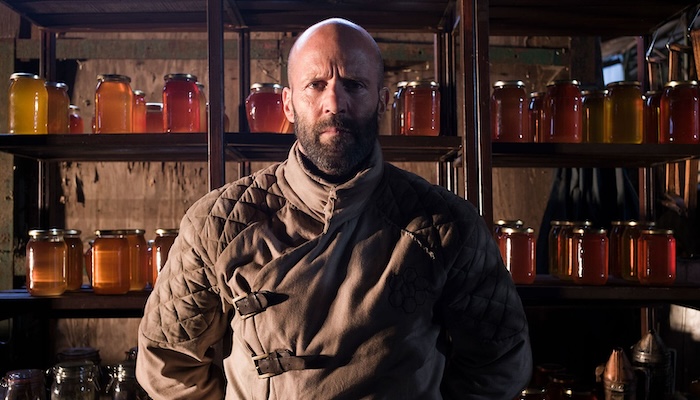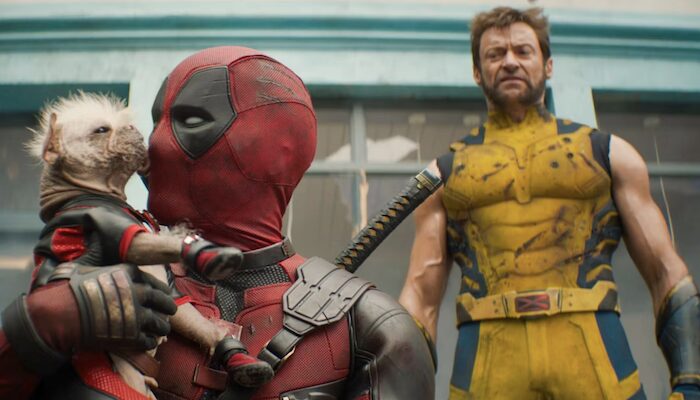TV Review: THE WALKING DEAD: Season 4, Episode 7: Dead Weight [AMC]
AMC‘s The Walking Dead Dead Weight TV Show Review. The Walking Dead: Season 4, Episode 7: “Dead Weight” seemed to answer the question of where a new family would take Brian Heriot (David Morrissey), the man formerly known as the Governor.
Martinez (Jose Pablo Cantillo) had allowed “Brian” into his group, but only by virtue of the family Brian had in tow. Even as they were settling in to their new life, Brian was confronted by a terrifying reality. This group had no Governor of its own. He initially deferred to Martinez; but Martinez, while encouraged by the difference the new family brought to “Brian,” admitted a need for the Governor. In an act that was purely a knee-jerk reaction, Brian killed Martinez. Careful to make it look like an accident, Brian seemed content to leave matters there. The leadership style of the group’s new leader, Pete (Enver Gjokaj), however, sent him into a panic. He attempted to evacuate the new family, but found the road out blocked by a small Walker herd, waste deep in mud. This was a fight or flight scenario for Brian, so once his avenue of escape was blocked, he took the only step he saw available to him. He killed Pete.
Brian had done all of this out of fear. He was no more afraid of Martinez revealing his past than he was of Pete’s idealism in dealing with other camps. He was afraid of the Governor. Both Martinez and Pete requested his help in running things. When Martinez admitted that they weren’t secure, Brian understood that the Governor was needed, and killed the only other person that could call on him. When Pete put humanity over the needs of the group, Brian once again saw the need for the Governor. He wanted to remove himself from the equation, to ensure that Brian – not the Governor – was entrusted with the new family’s well being. As he could not protect them away from the camp, he had to protect the whole camp the only way he knew how. The question was how to recreate Woodbury’s security without recreating the Governor. Mitch (Kirk Acevedo), Pete’s brother, wanted to ambush, rob, and likely kill, a smaller group, but was overruled by Pete. Brian silently sided with Mitch (hence, his panic). With Pete’s body anchored to the bottom of a nearby pond, Brian made Mitch an offer he couldn’t refuse.
Mitch was now in charge, and implementing Governor styled policies. If there were any misgivings over the new hard line, they were dispelled by an intruding Walker attack on Brian’s prospective daughter, Meghan (Meyrick Murphy). That attack cemented Brian’s resolve to find his new band as secure a home as there was, and in a scene that ironically mirrored Michonne’s (Danai Gurira) map search for the Governor, Brian circled one specific location he had certainly kept in mind.
If staring into flames (at camp and and in the destruction of Woodbury, last episode) somehow purged the governor of his psychopathic tendencies, then water (a leaking roof, a muddy moat of Walkers, zombie Pete’s pond prison) may have served to do the opposite (consider the peculiar “pet fish” that the Governor once stared at).
I would argue that the Governor had not been renewed, with this episode. Despite an apparent return, in manner and motif (including his signature Steyr AUG rifle), I believe we have been witnessing a process that predates Woodbury, making the Governor persona just as much a front as Brian Heriot. If the Governor was a reaction to the loss of his family, then Brian Heriot had gone about not just preventing a repeat of that loss, but a repeat of the Governor’s overreaction.
“Dead Weight” (and perhaps the story arc, itself) finally addressed the nature of feudalism, which, as an inherent quality of any post-civilization scenario, should have been a more prominent theme of the series. While feudalism was touched upon in season 3, with rival camps competing and ultimately clashing, “Dead Weight” put a spotlight on the building of a Feudal State, and a key component to that end: the Machiavellian adviser.
Faced with the dilemma of protecting his new family at all costs, but without the power of the Governor to do so, Brian convinced himself into a compromise. Wield the power and influence to do what needed to be done without assuming that power; in effect, becoming a puppet master – i.e. a politician. As extreme as his measures seemed, the idea was to get his way without forcing compliance. Mitch shared Brian’s views and was able to be led past Pete’s murder, while the others accepted the new directives as homegrown (by way of Mitch) rather than imposed by an outsider. The next step would be to marshal his human assets around a cause that achieves the goal he had convinced them needed achieving (absolute security). “Dead Weight” promised a return to the feuding camps theme (as that cause will most certainly be the prison), but took the time to show the inner workings of how a town like Woodbury would come to be, in a post-apocalyptic environment. Whether consciously or not, it was likely that Machiavelli’s principles had been as key to the rise of the Governor, as it had been for Brian Heriot.
Of course, Machiavelli is synonymous with the most insidious villainy. Far from it. Machiavelli was in no way a villain. His book, “The Prince,” was merely a recipe for achieving goals when force was no longer the guaranteed solution. Likewise, Brian was solely motivated by the need for success. Success meant securing his family (and the camp, by extension), and not revenge or ambition.
Whatever satisfaction Brian stands to gain, from renewed conflict with Rick’s camp, would still be a means to an end (albeit, a bonus). The allegory of chess, introduced last episode, figured prominently, here. There are numerous pawns at Brian’s disposal; but who, then, represents the principal pieces on his board?
I must say, I have been thoroughly enjoying the Brian/ Governor arc, so far. Like the previous arc, it has presented an air of inevitable doom and tragedy, but with a clear sense of direction that the “I” series lacked. Only these first two installments continued the last arc’s idiosyncratic titles trend, but with more (morbid) fun in its word play. If I were to sub-title the episodes of this arc, regarding its course for the Governor, then “Live Bait” would be “Redemption,” and “Dead Weight” would be “Renewal.” Based on the impression that “Dead Weight” left, the next installment could very well be “Revenge.”
For more The Walking Dead reviews, photos, videos, and information, visit our The Walking Dead Page, subscribe to us by Email, “follow” us on Twitter, Tumblr, or “like” us on Facebook.
Related Articles
FilmBook's Newsletter
Subscribe to FilmBook’s Daily Newsletter for the latest news!













